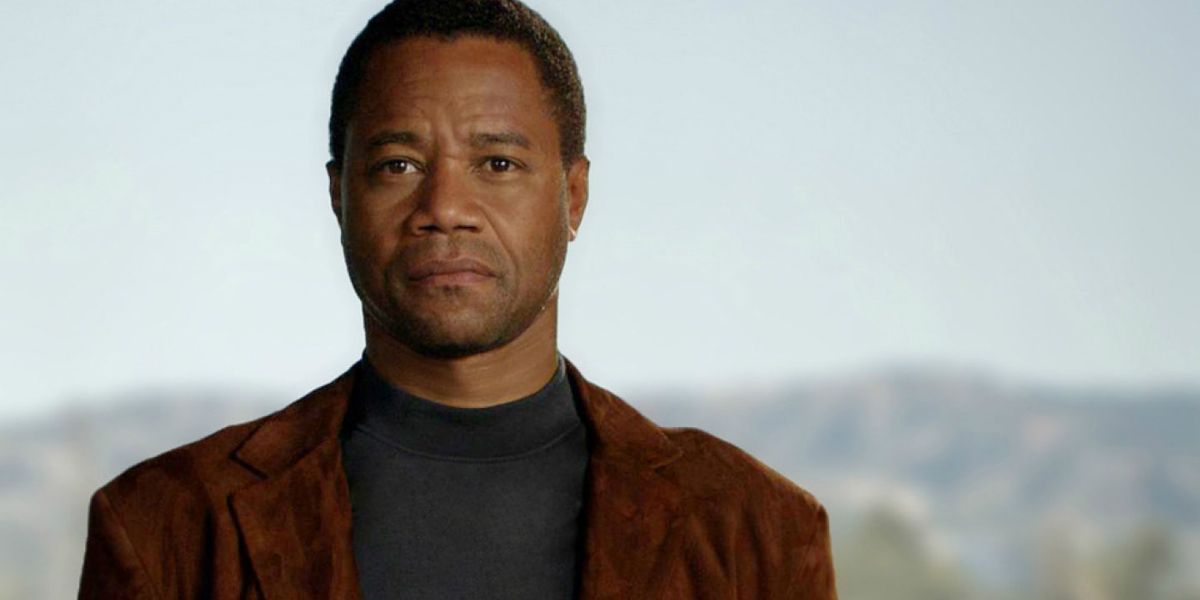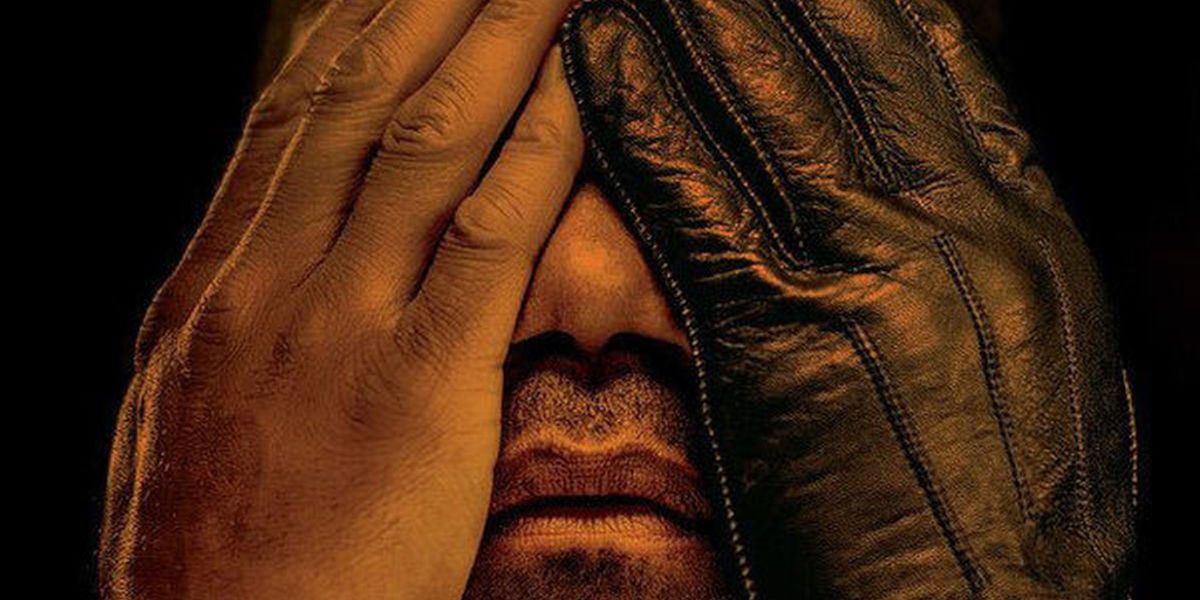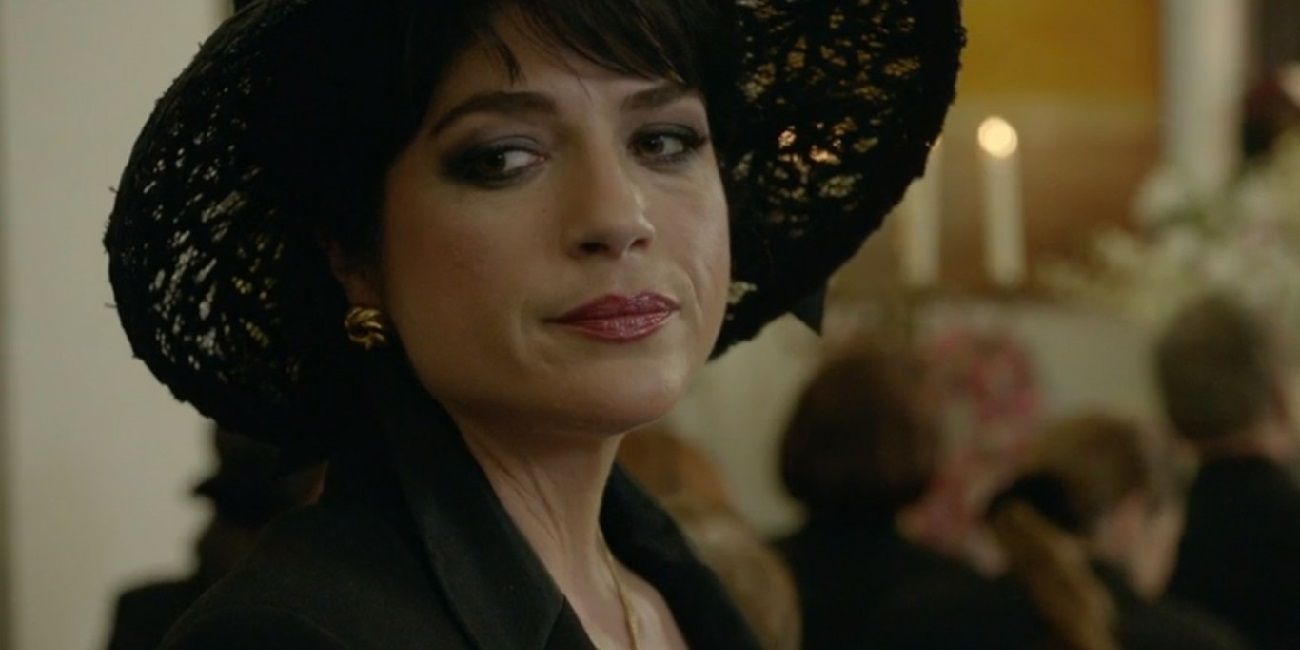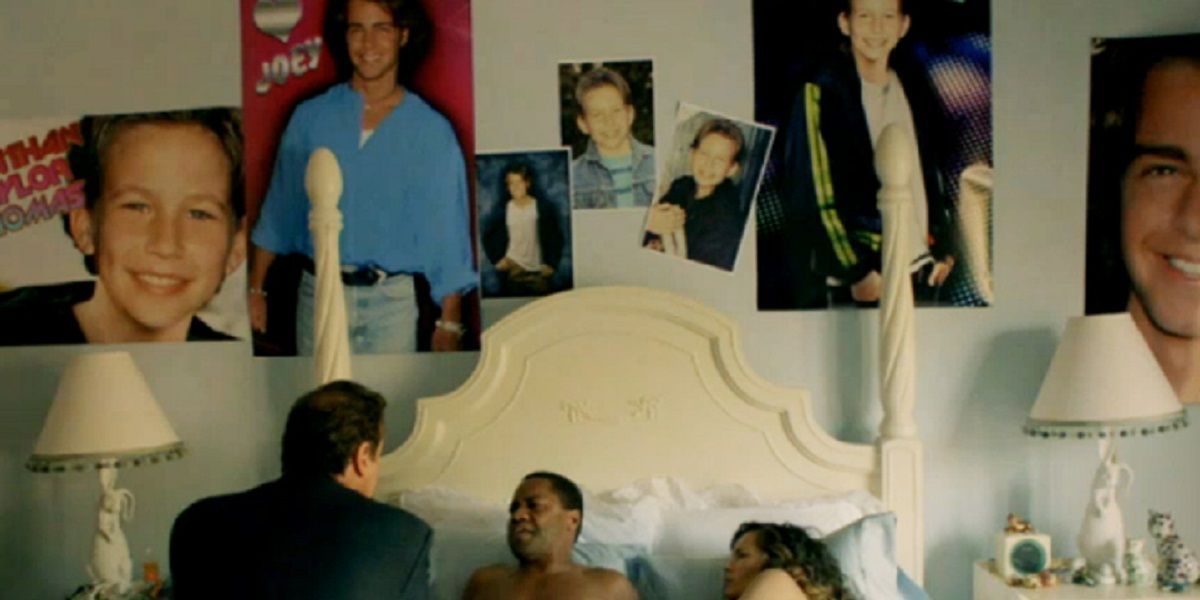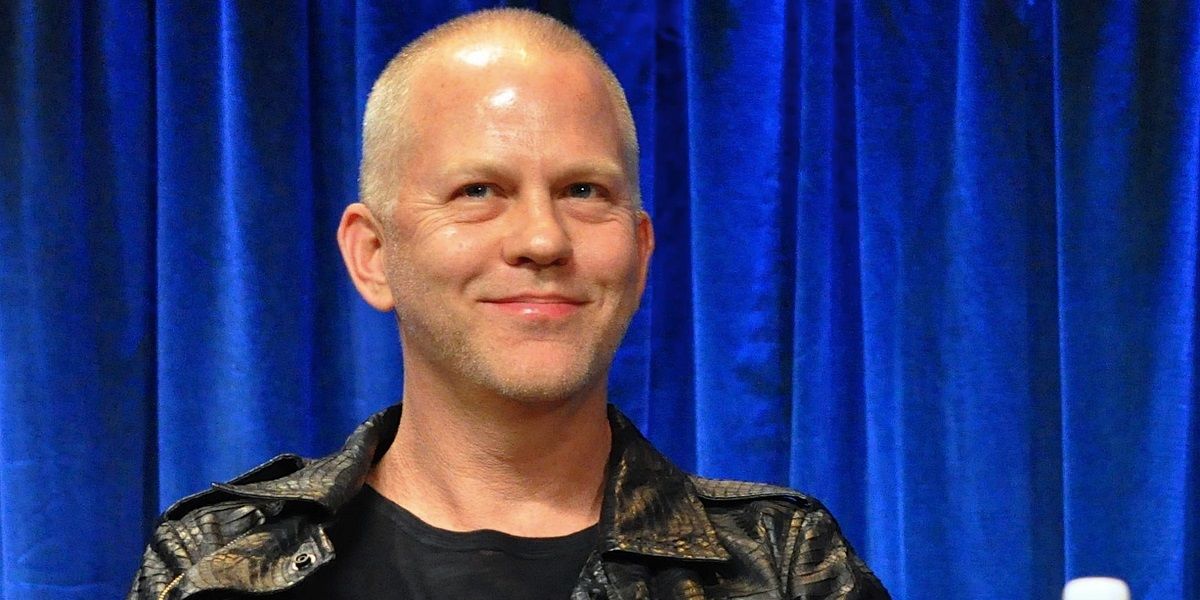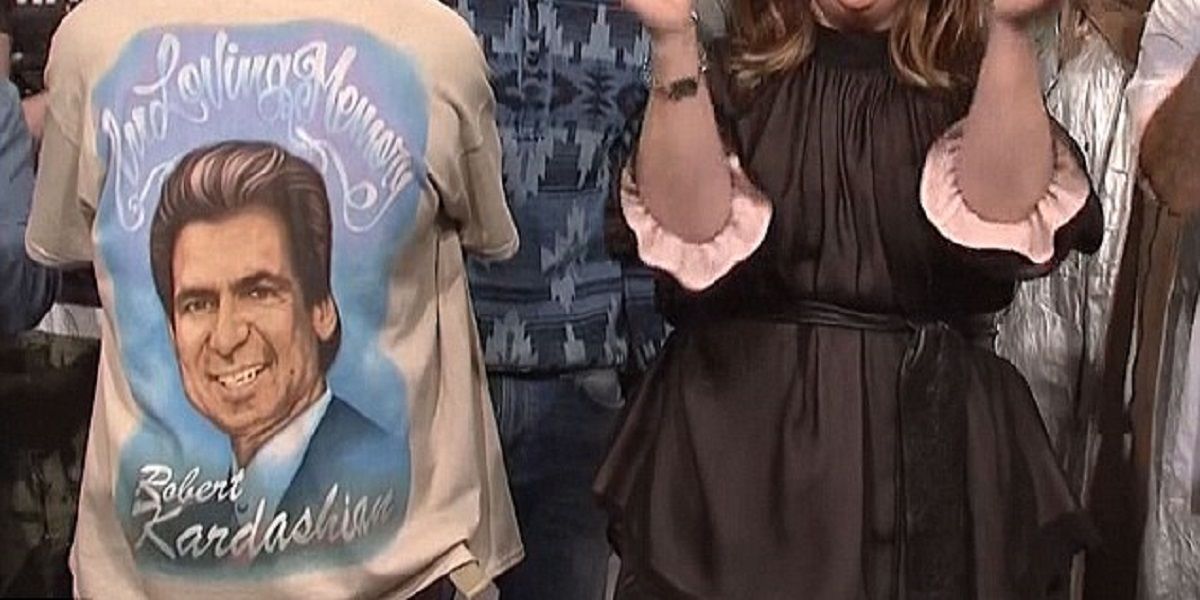Thus far, the most curious moment of American Crime Story: The People v. O.J. Simpson comes part way through the second episode. After the disgraced football star has, infamously, evaded police custody by slipping away in a white Ford Bronco, his defense team calls an impromptu press conference during which Robert "Bobby" Kardashian (David Schwimmer), friend and attorney of Simpson, appears on television to read a suicide note written by the distraught celebrity before he disappeared. Despite the gravity of the situation, with Simpson on the run and having possibly killed himself, the episode cuts to Kardashian's children, Kourtney (Isabella Balbi), Kim (Veronica Galvez), Khloé (Morgan E. Bastin) and Rob (Nicholas Bechtel), who are clearly ecstatic to see their dad on television. "Oh my god, it's daddy!" says Kim when he appears on-screen, and when reporters ask how to spell his name, she enthusiastically spells it out loud before the future Kardashian Klan breaks out into a creepy chant: "Kar-da-shi-an! Kar-da-shi-an! Kar-da-shi-an!"
This moment, showrunners Ryan Murphy and Brad Falchuk would have us believe, is when the Kardashians got their first taste of fame, hearing their name said aloud on television. It suggests that their future fame - replete with sex tapes, reality television shows, and marriages to eccentric rappers and NBA stars - was more of an inevitability than a coincidence, like there was no way the Kardashians, raised in the shadow of their father's celebrity friends, wouldn't end up famous.
The First Reality TV Star
In a generous light, the decision to include the Kardashian sisters (sorry, Rob) acts as a commentary on the case itself, wherein Simpson was charged with the murder of his ex-wife, Nicole Brown Simpson, and her friend, Ronald Goldman. The trial and the media circus that surrounded it would dominate television news coverage in 1994 and, it could be argued, constituted an early form of reality television. Not long after Robert Kardashian read the suicide note on live television, Simpson would be found, alive, with a gun to his head in the backseat of the Bronco on the Santa Ana Freeway, where cops would follow the vehicle at slow speed for hours as he threatened to kill himself. Those few hours would become an iconic moment of Los Angeles history, as the freeway was shut down and millions of Angelinos converged around their televisions to watch the chase, which superseded even the NBA finals on NBC's nightly broadcast. "O.J. is news, entertainment and sports," says a frustrated producer as he makes the decision to run the chase, challenging the notion that there's any real distinction between those three things.
A more prestigious pair of showrunners may have shied away from exploiting Simpson's connection to celebrity culture, but Murphy and Falchuk, creators of series as diverse in tone as Nip/Tuck, Glee, and American Horror Story, aren't really known for their subtlety. While all of those series are fairly shameless in their desire to entertain, Murphy and Falchuck have spent five seasons on the American Horror Story, seemingly on a crusade to locate any good taste remaining in their psyche, lobotomize it, and toss it in an incinerator; culminating with the infamous demon-on-Max Greenfield rape scene in the premiere of the fifth season, Hotel. As an anthology series that flagrantly transgresses boundaries of politics, class, race, sexuality and narrative logic, AHS can be thrilling, but it's usually more of a hot mess than grand moral statement.
The news that Murphy and Falchuk would be recreating the O.J. Simpson trial for the first season of their new anthology series was enough to raise even Robert Shapiro's eyebrows, which seemed to resemble those of Groucho Marx when the first image of John Travolta in character appeared online. It's one thing to the treat the fictional murderers of AHS like characters of high camp in Broadway's darkest, most deranged rock opera, but it's another thing altogether to address a very real crime in such a manner. Yet now that the first two episodes of The People v. O.J. Simpson have aired, most critics agree that the first few episodes, at least, are a mostly nuanced depiction of the events. As we said in our review of the premiere, "The implication of the series packing a grander sense of luridness than perhaps actually occurred was very real,... [but] the folks behind this 10-episode exploration of celebrity and race and murder (pretty much in that order) largely refused to take the bait."
Largely? Sure. But not entirely.
American Crime Story takes any chance it can to revel in Los Angeles' high income culture of celebrity eccentricity. Johnnie Cochran (Courtney B. Vance), who would become a defense attorney for Simpson, is introduced while dressing for a trip to Neverland Ranch to visit another client, Michael Jackson ("I can't wear lime. Michael's afraid of that color"). Robert Shapiro, Simpson's initial lead attorney, is introduced while bragging about plea bargain he negotiated for a Marlon Brando's son, who was charged with manslaughter. Simpson himself is first introduced talking to a driver about the first celebrity he ever met, Willie Mays ("I was just a kid, but it made me go, 'that's what I'm gonna be when I grow up'"), and when he threatens suicide, he does so in Kim Kardashian's bedroom, which is plastered in - of all remnants of ephemeral '90s pop culture - posters of Joey Lawrence and Jonathan Taylor Thomas (a bit of artistic license, according to celebrity news authority TMZ).
Celebrity and Race and Murder
All of this celeb-ogling would feel uncouth if it didn't also seem weirdly accurate. The world of Simpson, Shapiro, Robert Kardashian, Kris Jenner and future Real Housewife of Beverly Hills Faye Resnick (played by Connie Britton), is presented as an insular bubble of nouveau riche oddness, so powerful as to shield Simpson, at least partially, from the ramifications of being a black man accused of murder in America. For those too young to remember Simpson from anything except the trial, they may be shocked to learn that he was known, as an actor and Hertz car rental commercial guy, for his pervasive niceness. In fact, Simpson was turned down by James Cameron for the role of the T-800 in The Terminator for being "a likable, goofy, kind of innocent guy." Gooding ably captures this eager-to-please quality of Simpson, particularly when he's on the Bronco's car phone with an LAPD detective, apologizing for his behavior, "I just wanted to say how sorry I am. I didn't mean for you guys to all have to come out like this." Regardless of whether or not he murdered his ex-wife, Gooding makes you believe that Simpson was enough of a gregarious, positive person to literally leave a smiley face at the end of his suicide note.
Simpson resided in Brentwood, an affluent, mostly white suburb of Los Angeles. His ex-wife, Nicole Brown Simpson, and best friend, Bobby Kardashian, were both white. Even as L.A. was being torn apart by the riots following the Rodney King trial, Simpson played tennis with LAPD cops, and used those friendships to his advantage when Brown Simpson would call them to their house for domestic abuse complaints. "I just can't picture O.J. Simpson doing it," says one Assistant District Attorney as the DA's office look at photos from the crime scene, "I met him once at a golfing event; he's the nicest guy!" It's also difficult to imagine the LAPD shutting down a major freeway for the sake of any fugitive who didn't have the advantage of being famous. When Simpson says "I'm not black, I'm O.J." in the trailer, he's telling the truth as he sees it. Before the trial becomes a focal point of discussions about race, Simpson believes that his status as a celebrity might actually be powerful enough to overcome his race, and for a while, it seems as though he might even be right.
The Hollyweird World of Los Angeles
And this is why Murphy and Falchuk were probably the right people to tackle this story. A more orthodox showrunner probably would have downplayed the connections between Simpson and the future of the Kardashian family, so as to avoid distracting from the main story (and would have never have included a scene of the Kardashian children cheering for their father as he read Simpson's suicide note). Ryan Murphy, who cut his teeth as the creator of Nip/Tuck, a series about the high life of plastic surgeons, feels at home in the weirdness of Hollywood celebrity culture, and the series itself never seems to set itself above the fray. It ogles at the twists and turns of the Simpson trial with the same level of interest as the sensationalized media coverage of the day, but without putting on a faux air of superiority over the people glued to their TV sets or crowded on the streets of Brentwood, cheering for OJ as the Bronco pulls into his driveway with a police escort in tow. In other words, he knows that the audience wants to see Kim Kardashian and her sisters as children, even if the don't admit it.
If the goal of the first few episodes of The People v. O.J. Simpson is to make audiences forget about the history of the trial before they revisit it, then Murphy and Falchuk probably failed, as the series is continually reminding us of the contemporary parallels to the case. But if the goal of these two episodes is to make us reconsider Simpson as a celebrity first and a murder suspect second, then its embrace of celebrity culture is warranted. Simpson may have been an actor at the time, but he was better known as "The Juice," a figure who appeared mostly in goofy Hertz car commercials. He may have been a football star at one point, but by 1994, like the Kardashians that came after him, Simpson was famous for being famous.
In tonight's episode of The People v. O.J. Simpson, Robert Kardashian sits down with his children at one point and tells them, ironically, "We are Kardashians, and in this family being a good person and a loyal friend is more important than being famous. Fame is fleeting. It’s hollow. It means nothing at all without a virtuous heart.” Yet it doesn't seem as though they took the message to heart. On last week's episode of Saturday Night Live, Kim Kardashian's husband, Kanye West (more famous at this point for his rambling Twitter screeds and emotional public outbursts than his music), wore a colorful pastel T-shirt commemorating the life of Robert Kardashian, who died in 2003, and his mother, the late Donda West. In recent years, Kim and Kanye have become a symbol of celebrity narcissism, so it's only fitting that he give Robert Kardashian his due, even if was on a shirt that looks like it was commissioned on the Venice Beach boardwalk. After all, the Kardashian Wests, for all their successful music and business ventures, are still living in the celebrity-obsessed, tabloid-driven culture that Kim's father unwittingly helped to create.
-
The next episode of American Crime Story: The People v. O.J. Simpson airs tonight on FX at 10pm.

